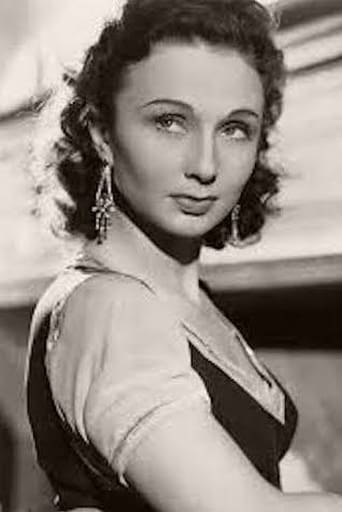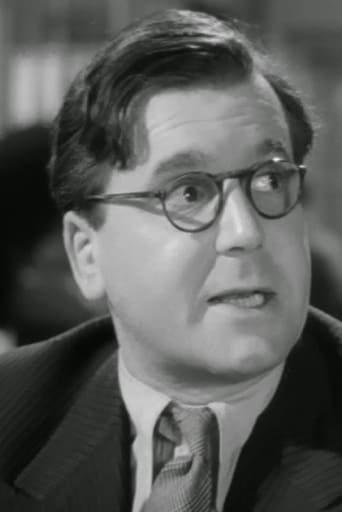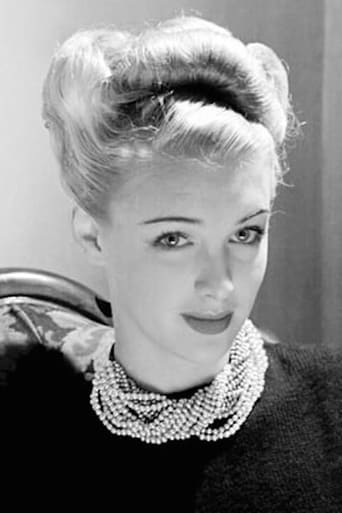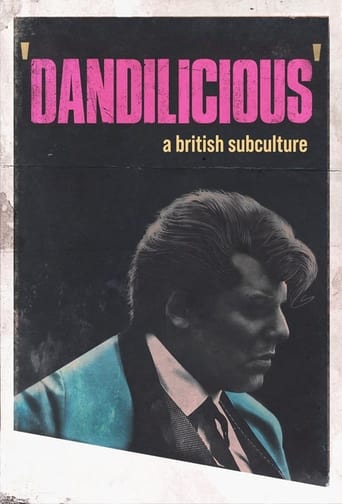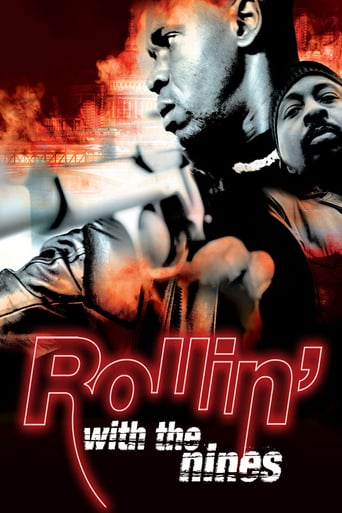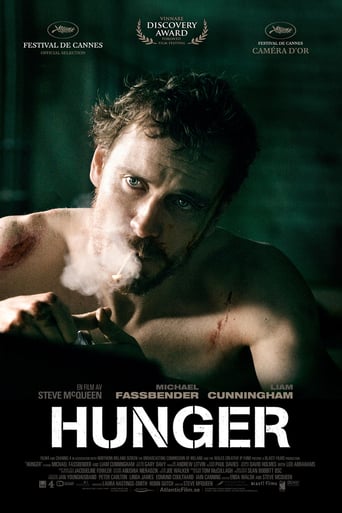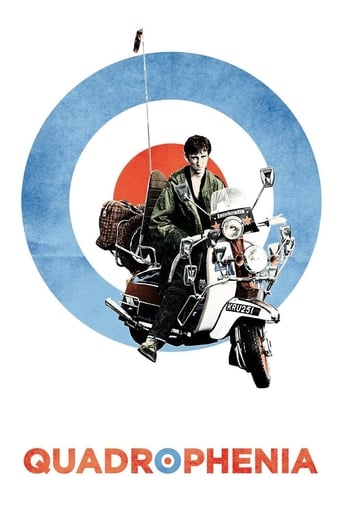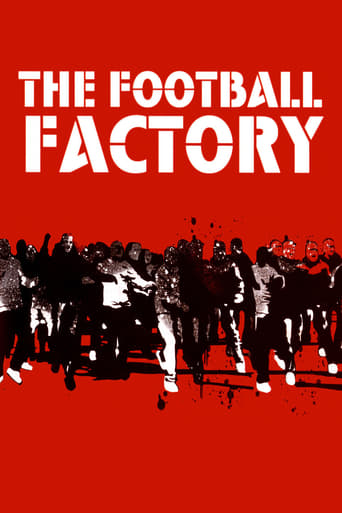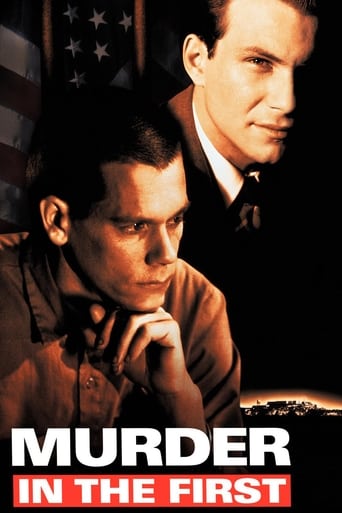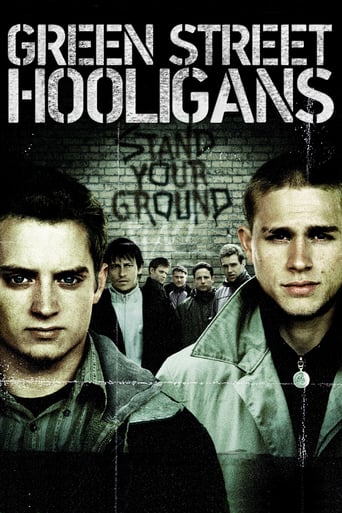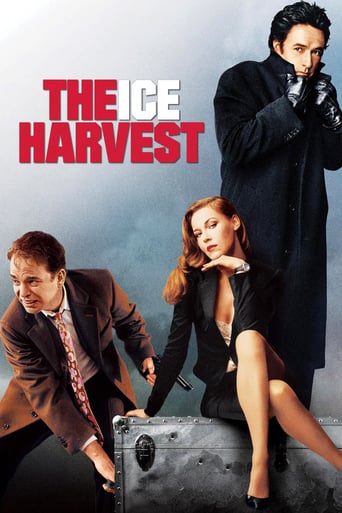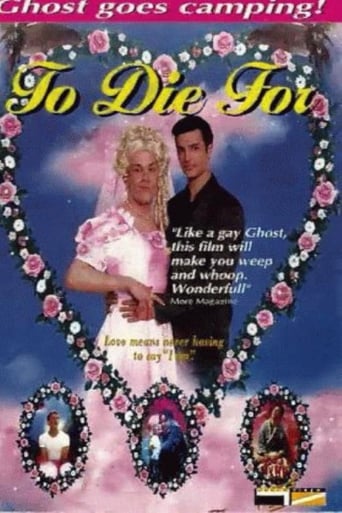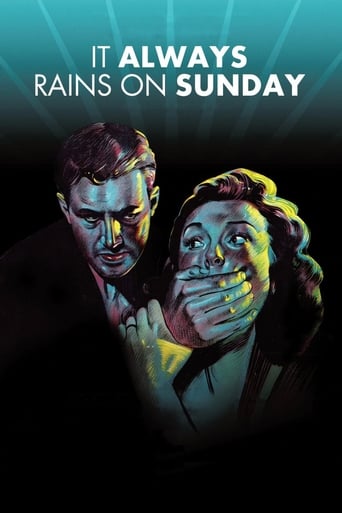
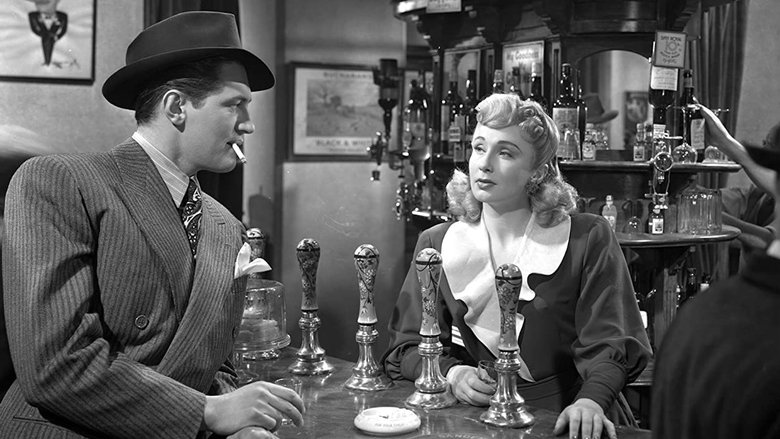
It Always Rains on Sunday (1949)
During a rainy Sunday afternoon, an escaped prisoner tries to hide out at the home of his ex-fiance.
Watch Trailer
Cast
Similar titles
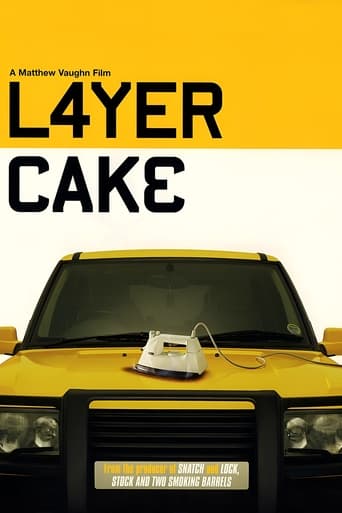
Reviews
Good movie, but best of all time? Hardly . . .
Don't listen to the negative reviews
An Exercise In Nonsense
There are moments in this movie where the great movie it could've been peek out... They're fleeting, here, but they're worth savoring, and they happen often enough to make it worth your while.
It is already listed but if you want to see the street where the family was "living" go to Hartland Road, just off Chalk Farm Road, just north of Camden Market. It is amazing how little has changed! (except the price of property!) It is odd to think that the street in which the film was set in such a period of shortages is now so close to such overt consumerism! Also nice to note that is the fact that "Rose"- Googie Withers and "lover boy" John McCallum married each other for real in the year that the film was made and are still alive and married to each other today! I wonder if films which are so "depressing" could be made today. Maybe the audience is just not there anymore. Conditions have improved since then and film-makers have to relate to their current audiences (usually under 25!)
It Always Rains on Sunday (1947), co-written and directed by Robert Hamer, is a film noir movie set in London's working class East End. The film is dated in many ways--London, two years after the end of WW II, is not the London that we know in the 21st Century. We can still see evidence of bomb damage, rationing still applies, and there's a sense of community where everyone knows everyone else's business. Police and petty criminals engage in banter: Joe runs a lunch wagon where criminals tend to meet. A detective sergeant stops at the wagon for information. Joe: We don't cater to the criminal classes. Detective Sergeant Fothergill: Turned over a new leaf?Several plot lines run through the film. An escaped convict--scarred after being flogged with a cat-o-nine-tails--turns up at the home of a woman he once loved, and who loved him. Rose Sandigate, played by the talented and beautiful Googie Withers, has since entered into a practical marriage with a man 15 years older than she is. We enter into her life, along with the lives of her two step-daughters, her son, three petty criminals trying to get rid of stolen roller skates, and some Jewish good guys, bad guys, and not-so-bad guys.The production values aren't great, and the lower class accents sometimes call for subtitles. Nevertheless, the central plot element of an escaped convict, who returns to find that the woman he loves has married while he was in jail, is as compelling now as it was 60 years ago.Finally, the powerful scene of detectives chasing a man through the train yards in the dark, was surely known to Carol Reed when he directed "The Third Man." Reed's scene, set in the sewers of Vienna, took place miles away from Hamer's London. Even so, in compelling action and suspense, they have a great deal in common.
Googie Withers was England's equivalent of Joan Blondell (although better-looking and more talented): both actresses played similar types, alternating their performances between dramas and comedies. In 'It Always Rains on Sunday', Withers gives possibly the best performance of her career. She's skilfully abetted by a universally excellent cast.This is a taut thriller, very much in the Hitchcock vein, based on a novel by Arthur La Bern. (His novel 'Goodbye Piccadilly, Farewell Leicester Square', set in Covent Garden in this same time period, was updated by Hitchcock as the basis for 'Frenzy'.) The lives (and a death) of several people in London's East End are deftly interwoven. A real strength of this drama is its perfect encapsulation of a distinctive time and place in one London neighbourhood: Bethnal Green and its environs.The dialogue is note-perfect, although Americans will want subtitles for such terms as "have a butcher's" (take a look), "sweet Fannie Adams" (not a bloody thing), "Bob's your uncle" (you're all set), "shopped" (informed upon), "clothes" (blankets) and "the Anderson" (a mass-produced prefabricated outdoor shelter during the Blitz, employed as garden sheds after the war). I was even impressed that the scriptwriters caught the East Enders' subtle distinction between "up west" (the West End) and "out west" (the Home Provinces). That Anderson shelter, Mrs Spry's doss-house, the ration book, the police call-box with Albertus panels (from the pre-999 era of Whitehall 1212), the wide boys and the spivs (notably the splendid John Slater) all gave me a twinge of nostalgia.SLIGHT SPOILER. The climactic chase is thrilling and well done, except for two shots using miniatures that are laughably obvious. American viewers might wonder why the plainclothesmen don't just simply shoot the fugitive. (When this film was made, British police never carried firearms except in very unusual circumstances.) I did notice a few minor errors, including some tech errors. Only two years after V-E Day, with rationing still in place, it's very unlikely that so many working-class Englishwomen would have such elaborate make-up. (Get a line on those carefully pencilled eyebrows!) Spivs or no spivs: how did so many of these characters get such elaborate and expensive leather gloves? And, drunk or not: would Vi (Susan Shaw) really go straight into bed without removing her make-up and her expensive frock? 'It Always Rains on Sunday' brilliantly preserves life in Bethnal Green in the late years of George VI's reign ... and also tells a cracking good suspense yarn. My rating for this one: despite a few flaws, a perfect 10 out of 10.
Film Noir defies definition, plenty disagree whether its a movement, genre, style. Perhaps its more usefully conceived as a sensibility, a world view, an attitude. In which case the words pessimism, determinism ie characters lacking choice their lives are predetermined, doom, gloom, the past coming back to affect the present all spring to mind. Its possible to see a cycle of films with remarkably consistent features in terms of visual style emerging in U.S primarily and to a lesser extent the U.K and France in the forties and fifties. While most noir films have a male as the central protagonist, a male who is invariably weak and flawed, a number of these films, such as Mildred Pierce, have a female protagonist. Noir manifested itself differently in Britain, combining with elements of what was to become known as kitchen sink or social realism and frequently concerned with social class.This film uses the claustrophobic interiors of the terraced house to great effect. The noir style of long shadows, oblique angles, becomes more evident in the final climax, not really needed early on since the interiors work effectively without lighting effects. Melancholia drips through this like the rain of the title, Googie Withers is terrific, her face a mask of dreams, desires pushed away, disappointment etched over her features through her hard make up. How different she is in appearance to the femmes fatales of the U.S movies, bustling round the kitchen in her pinafore, then later on the almost military smartness of her utility dress when she attends Tommy. As a character shes every bit as strong however as her American counterparts. Like Mildred Pierce, she's strong in a domestic setting, when the usual convention for women in noir is to take them out of the domestic, placing them typically as nightclub singers or gangsters molls. In details I ll acknowledge this is on occasions cheesy and dated. Scratch at the surface however and its a fascinating exploration of the social tensions emerging after World War Two. How were people to adjust to life in peacetime? Were they able to return to the rigidly prescribed roles they d had prior to the war? Ealing studios produced a number of films which now can be seen to share many affinities with American Film Noir, this is one of the most interesting and rewarding.
